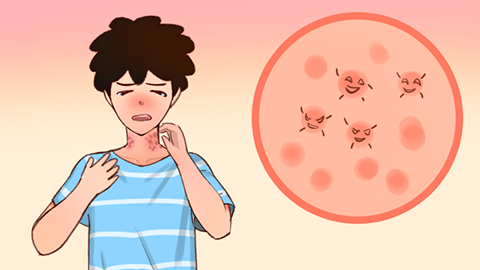What are the precautions for infantile emergency rash?
Infantile急疹, commonly refers to roseola infantum. In general, the care for roseola infantum requires attention to monitoring body temperature, appropriate cooling measures, skin care, dietary adjustment, and observation of the child's condition. Scientific care can help the child recover smoothly. The specific recommendations are as follows:

1. Monitor body temperature: Measure the temperature regularly, especially intensifying observation at night. Prompt cooling measures should be taken when the temperature exceeds 38.5°C. High fever that persists can easily induce convulsions, so the child's consciousness should be closely observed and any abnormalities should be handled promptly.
2. Appropriate cooling: Prioritize physical cooling methods such as sponge baths with warm water and reducing clothing. If necessary, take children's specific fever-reducing medication according to the prescribed dosage. Avoid frequent medication changes or overdosing to prevent adverse reactions. Fever reducers only relieve discomfort but do not shorten the course of the illness.
3. Skin care: During the rash phase, gently clean the skin with warm water and avoid using irritating cleansers or toiletries. Trim the child's nails and, if necessary, have them wear soft gloves to prevent scratching that may lead to skin damage and infection.
4. Dietary adjustment: Choose easily digestible liquid or semi-liquid foods such as rice broth, soft noodles, and fruit puree. Avoid oily, spicy, or cold foods. Frequently feed the child warm water or slightly salted water to replenish fluids lost due to fever and prevent dehydration.
5. Observe the condition: Pay attention to the child's mental state, appetite, and sleep. If abnormalities such as listlessness, persistent vomiting, difficulty breathing, or convulsions occur—even if the temperature has not reached high fever levels—seek immediate medical attention.
In caring for roseola infantum, it is important to follow the principle of moderation and avoid excessive treatment. The focus should be on temperature management and daily care. Parents should remain calm and avoid anxiety, providing care according to scientific methods. Attention should also be paid to indoor ventilation and minimizing contact with outsiders to create a comfortable recovery environment for the child.




